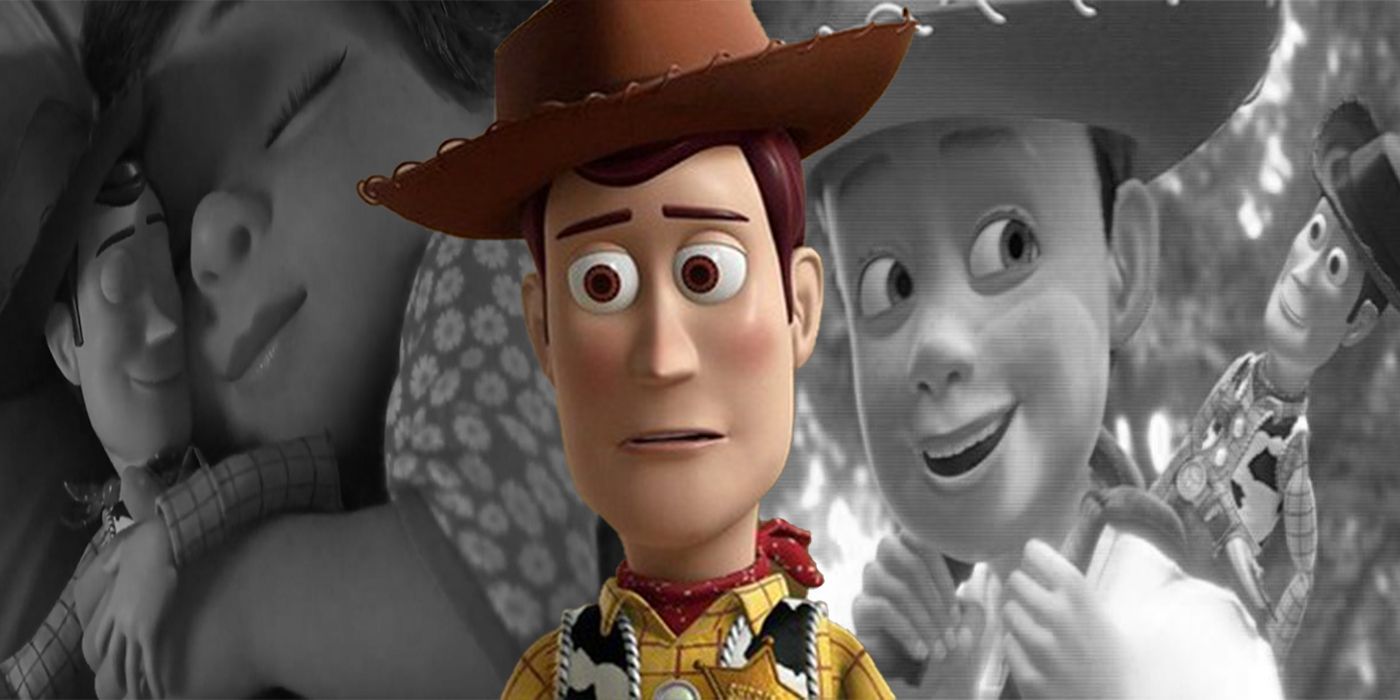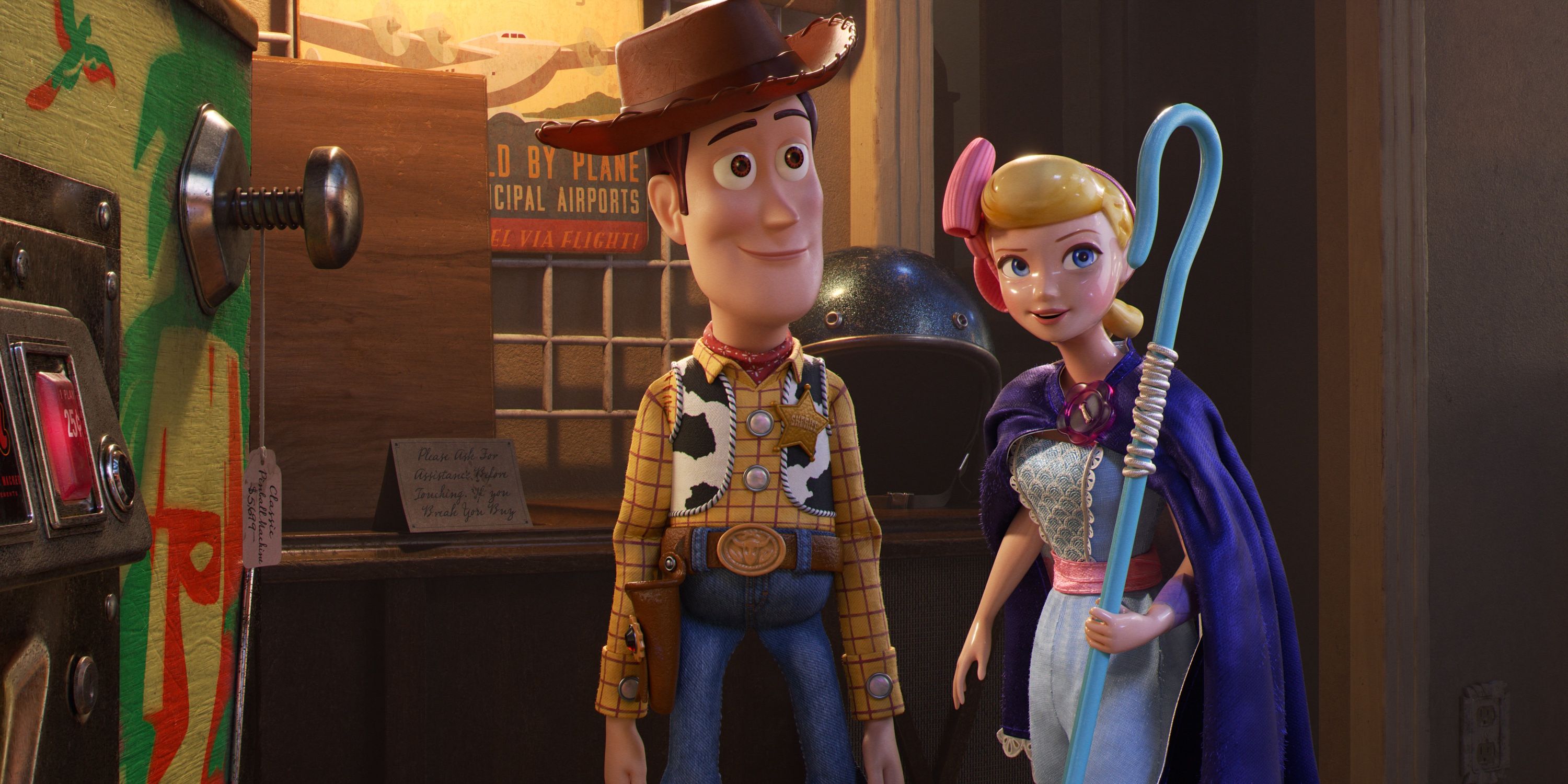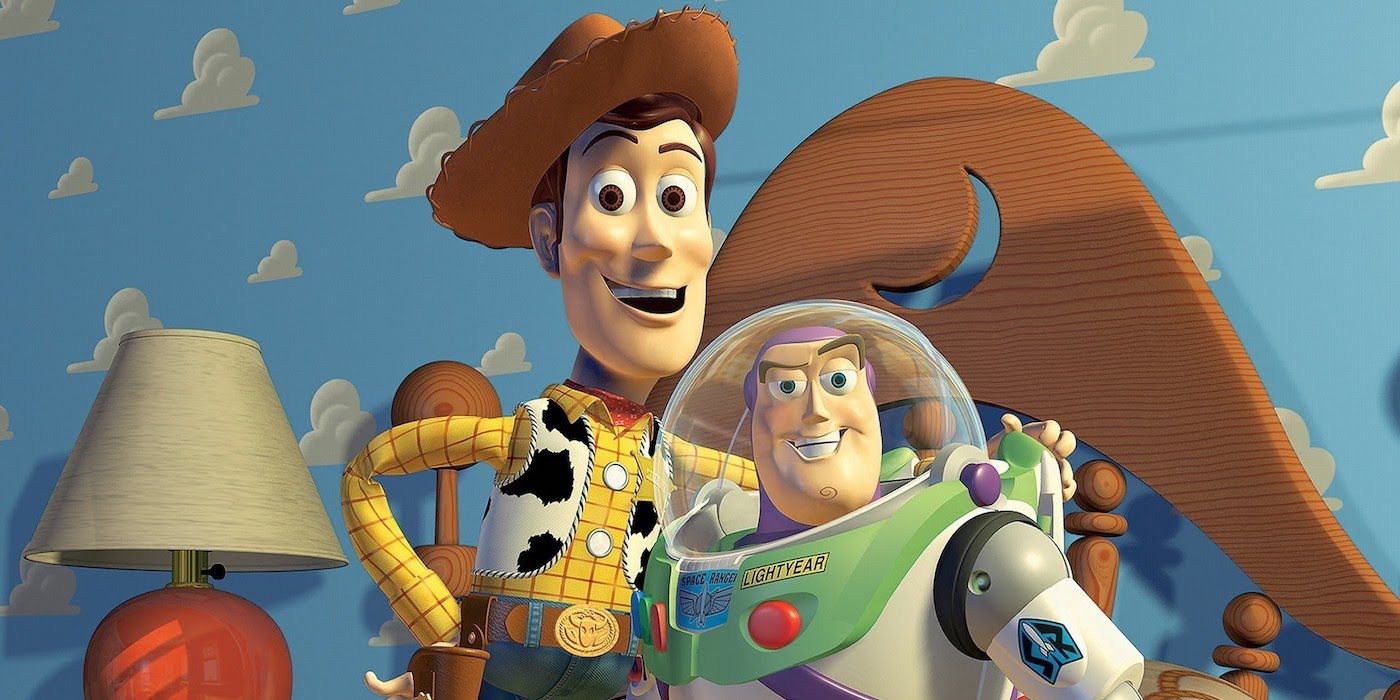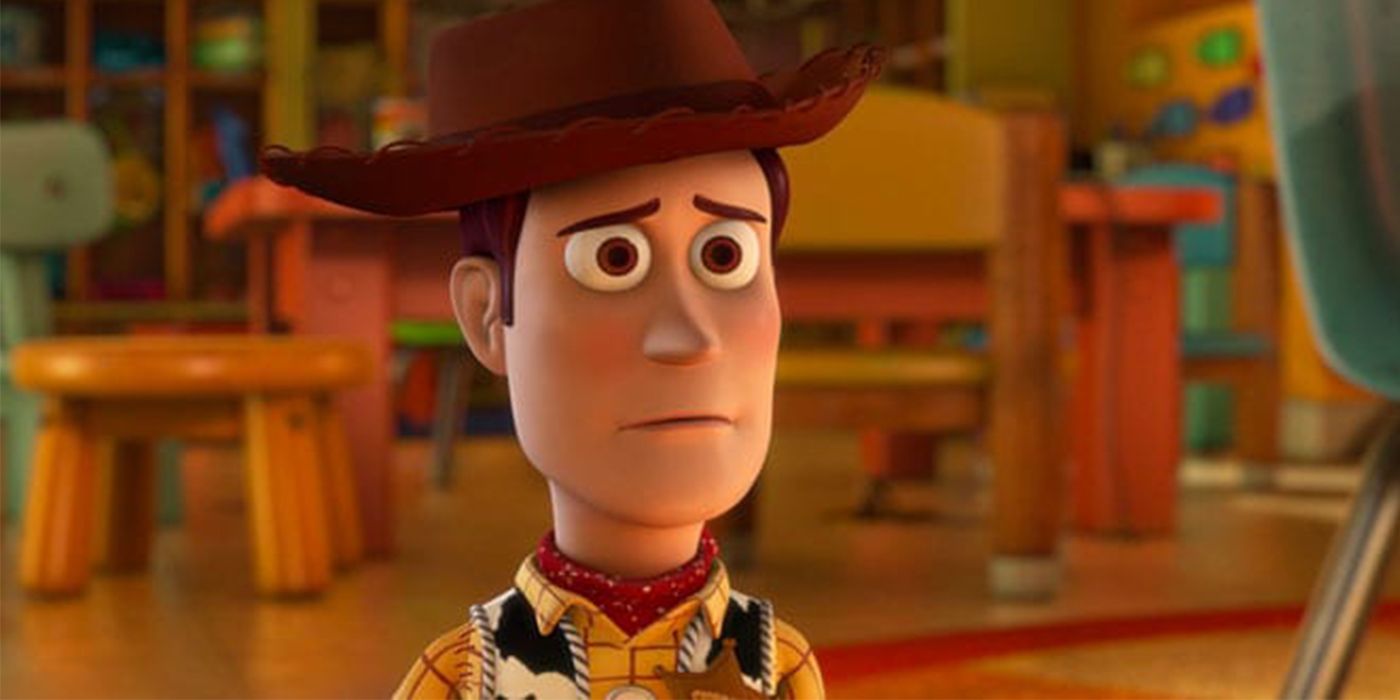Though Toy Story 4 concludes by showing an excited Woody ready to explore a new chapter in his life, this ending is not as happy as the final scene would lead fans to believe. Over the Toy Story franchise’s decades-long run, the series has consistently defined the purpose of a toy. Woody's (Tom Hanks) new chapter defies this very purpose, implying that his temporary joy in Toy Story 4’s finale is a facade that has doomed him to a future of unhappiness.
The Toy Story franchise has always followed Woody’s journey to becoming the best toy a kid could ever wish for. By meeting new characters like his best friend Buzz Lightyear (Tim Allen) and spirited cowgirl Jessie (Mary Kay Bergman/Joan Cusack), Woody has learned what his duty is as a toy and has proceeded to successfully fulfill it. Until Toy Story 4, each adventure developed Woody’s determination to uphold his kid’s happiness. Toy Story 4, however, caused this determination to waiver to a point of no return.
In Toy Story 4, Woody made the decision to leave Bonnie for good. This decision completely destroyed the character growth Woody had exhibited since Toy Story’s initial release. By abandoning his duty to Bonnie and subsequently his personal growth, Woody had unintentionally caused the downfall of his own happiness.
Woody’s Toy Story 4 Ending Explained - Why He Leaves
At the end of Toy Story 3, Andy entrusted Woody and the rest of his toys to give Bonnie the same joy they gave him throughout his childhood. In the opening of Toy Story 4, fans were shown just that. However, scenes of Bonnie playing with everyone slowly shifted into scenes of Bonnie playing with everyone except Woody. Nevertheless, Woody continued to look out for Bonnie’s best interests using unconventional methods, such as protecting Bonnie’s new favorite toy Forky. After embarking on a quest to reunite a lost Forky with Bonnie, Woody encountered his old love interest Bo Peep (Annie Potts).
As Woody and Bo caught up, she mentioned that she found new meaning in life as a “Lost Toy”. The idea of obtaining such freedom had crossed Woody’s mind in the past, but he ultimately refused due to his duty to support Andy. In the present though, Woody found himself becoming increasingly distant from Bonnie’s heart. Bonnie’s growing detachment prevented Woody from feeling capable of providing her joy. Once Woody surmised that Bonnie didn’t need him to be happy, Woody perceived that he could follow in Bo’s footsteps and also find new meaning in life as a “Lost Toy”.
Toy Story 4 Betrays Woody’s Franchise Arc
Throughout the Toy Story series, Woody developed into a toy that completely devoted himself to upholding Andy’s happiness. In the first Toy Story, Woody was filled with jealousy and rage at the prospect of Buzz replacing him as Andy’s favorite toy. These negative emotions encouraged Woody to sabotage Buzz’s opportunity to spend more time with Andy, leading to a series of hijinks that concluded with the two working together to reunite with their beloved kid. In order to protect Andy’s happiness, Woody accepted that Buzz needed to be a part of Andy’s life just as much as himself, even if Buzz’s presence risked Woody’s position as Andy’s favorite.
Related: Toy Story 3: Lotso Is DARK WOODY Theory Explained
Toy Story 2 further tested Woody’s devotion by introducing him to Jessie, who proceeded to share her tragic tale of being given away after her kid outgrew her. Despite harboring fears of abandonment after hearing Jessie’s story, Woody eventually resolved to return to Andy’s side for as long as Andy needed him. This need was fulfilled by the end of Toy Story 3. Though initially hesitant, Andy decided to part with Woody for Bonnie's happiness and Woody fully embraced his choice. This bittersweet ending completed Woody’s journey from selfishly pursuing his own wants to sacrificing his desires for the happiness of his kids.
Toy Story 4’s ending took the character development Woody experienced throughout the Toy Story franchise and reversed it. His decision to become a “Lost Toy” reintroduced fans to the same Woody they met at the beginning of the original Toy Story. In the series' final movie, Woody abandoned his devotion to maintaining Bonnie’s happiness as her toy by choosing to pursue his own. Even though Bonnie was shown to be disinterested in playing with Woody, Woody was still able to support her happiness on the sidelines. His safeguarding of Forky alone was enough to keep Bonnie smiling. Unfortunately, Woody gave this role up in order to pursue a life with Bo.
Why Woody Is Doomed To Be Unhappy Forever
During the past four Toy Story movies, the Pixar universe has established that a toy’s purpose is to be played with in order to bring children joy. This is the very reason Woody decided to leave Bonnie in the first place; he wasn’t able to directly give Bonnie joy, because she wasn’t playing with him. However, Woody’s new life without Andy or Bonnie as a “Lost Toy” failed to address this problem. A “Lost Toy” is determined to do as they please without any owner. A toy without an owner has a significantly smaller chance of being played with. Thus, Woody’s decision to become a “Lost Toy” decreased his odds of fulfilling a toy’s purpose. With an unfulfilled purpose constantly looming over him, Woody is unable to obtain even a sliver of the happiness he once had as Andy’s toy.
Since Toy Story 4 is widely regarded as the end to the Toy Story franchise, Woody won’t have an opportunity to reflect on the consequences of his final decision. However, the same can’t be said for the millions of fans that have watched Woody grow and have grown with him. The saga of the Toy Story movies is the same age as young millennials. The same individuals who rooted for Woody as children must now confront his regression as adults. Though fans would have surely preferred to bid farewell to a Woody that rejected the concept of becoming a “Lost Toy,” they must instead accept the message that acting on selfish impulses will only lead to sorrow down the road.




